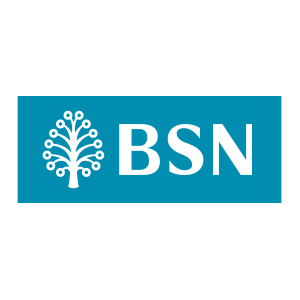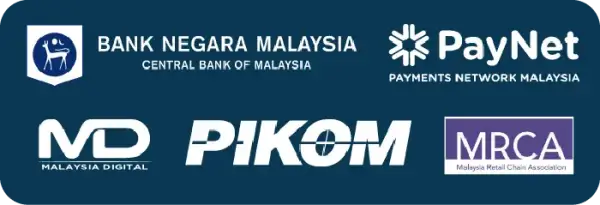
As Malaysia’s e-commerce market continues to grow rapidly, ensuring the security of online payments is more critical than ever for business owners. Choosing a secure payment gateway not only protects your customers’ sensitive information but also builds trust, safeguards your brand reputation, and helps you comply with local regulations. This guide walks you through the key aspects of payment gateway security specific to Malaysia, what to look for, and best practices to keep your online transactions safe.
What is a Payment Gateway?
A payment gateway acts as the digital cashier for your online store. It securely processes customers’ payment information during checkout, facilitating the authorization and settlement of transactions between the buyer’s bank and your merchant account. The gateway encrypts data, preventing unauthorized access during transmission.
Why Payment Gateway Security Matters in Malaysia
Malaysia’s digital economy is booming, with more businesses accepting online payments via platforms like FPX, DuitNow, and eWallets. Unfortunately, this growth also attracts cybercriminals targeting vulnerabilities in payment systems. Security breaches can lead to:
- Financial losses from fraudulent transactions
- Loss of customer trust and damage to your brand
- Legal penalties for failing to comply with data protection laws like the Personal Data Protection Act (PDPA) Malaysia
- Operational disruptions and costly recovery efforts
A secure payment gateway is your first line of defense against these risks.
Key Security Features to Look For in Malaysian Payment Gateways
1. PCI DSS Compliance
The Payment Card Industry Data Security Standard (PCI DSS) is an international security standard that payment gateways must adhere to if they handle credit card data. Ensure your gateway is PCI DSS certified — this means it follows stringent protocols for data encryption, storage, and transmission.
2. Data Encryption
Look for gateways that use strong encryption methods such as TLS (Transport Layer Security) to protect payment data during transmission. Encryption ensures that sensitive information like credit card numbers is unreadable if intercepted.
3. Two-Factor Authentication (2FA)
Gateways offering 2FA add an extra layer of security by requiring users to verify their identity through multiple methods (e.g., password plus a one-time code sent to their phone). This reduces the risk of unauthorized account access.
4. Fraud Detection and Prevention Tools
Advanced payment gateways include built-in fraud detection systems that monitor transactions for suspicious activity — such as unusual payment amounts, multiple failed login attempts, or transactions from high-risk locations. Some even offer machine learning models that improve detection accuracy over time.
5. Tokenization
Tokenization replaces sensitive payment data with unique identification symbols (tokens) that cannot be used outside the specific transaction. This reduces the risk if data is leaked or stolen.
Before diving into features like PCI DSS or tokenization, it’s important to start by choosing the right payment gateway that aligns with your business size, customer base, and risk tolerance.
Regulatory Considerations in Malaysia
Personal Data Protection Act (PDPA)
Under Malaysia’s PDPA, businesses are required to protect customers’ personal data, including payment information. Using a secure, compliant payment gateway helps you adhere to these legal obligations and avoid penalties.
Bank Negara Malaysia (BNM) Guidelines
The central bank provides specific regulations and guidelines around electronic payments and security. Choosing a gateway that follows BNM’s policies ensures your business operates within the legal framework.
Best Practices to Enhance Payment Security on Your Website
- Use HTTPS Everywhere: Ensure your entire website uses HTTPS to encrypt all data exchanged between users and your server.
- Keep Software Updated: Regularly update your e-commerce platform, plugins, and gateway integrations to patch security vulnerabilities.
- Limit Data Storage: Avoid storing sensitive payment data on your own servers unless absolutely necessary; rely on the payment gateway’s secure infrastructure.
- Educate Your Team: Train your staff on security best practices and recognize phishing or social engineering attacks.
- Monitor Transactions: Regularly review transaction reports for unusual patterns and act quickly on suspected fraud.
Conclusion
Security is non-negotiable in Malaysia’s thriving online payments landscape. Selecting a payment gateway with robust security features, adhering to local regulations, and implementing best practices will protect your business and customers from the growing risks of online fraud. Prioritize security today to build trust and ensure your e-commerce success. To fully understand the landscape, you should refer to The Ultimate Guide to Online Payment Solutions in Malaysia, which covers everything from gateway options to payment methods.
Frequently Asked Questions
1. What makes a payment gateway secure in Malaysia?
A secure payment gateway uses encryption, complies with PCI DSS, offers fraud detection, and follows local regulations like PDPA and BNM guidelines.
2. Is PCI DSS compliance mandatory for Malaysian businesses?
While PCI DSS is an international standard, Malaysian businesses handling card payments are strongly encouraged to use PCI-compliant gateways to protect data and avoid liability.
3. Can I integrate multiple payment gateways securely?
Yes, but ensure each gateway meets security standards and your website handles integrations carefully to avoid vulnerabilities.
4. How can I tell if my payment gateway is complying with Malaysian laws?
Check for certifications, compliance statements on the provider’s site, and ask about adherence to PDPA and BNM regulations during onboarding.
5. What should I do if I suspect fraudulent transactions?
Immediately contact your payment gateway provider, review your transaction logs, and follow your gateway’s fraud response procedures.
6. Does using a payment gateway eliminate all fraud risks?
No, but it significantly reduces risk. Combine gateway security with website best practices and customer verification for optimal protection.
Categories
Our Partners :





Paydibs is a leading payment solutions provider committed to simplifying transactions for businesses of all sizes.

